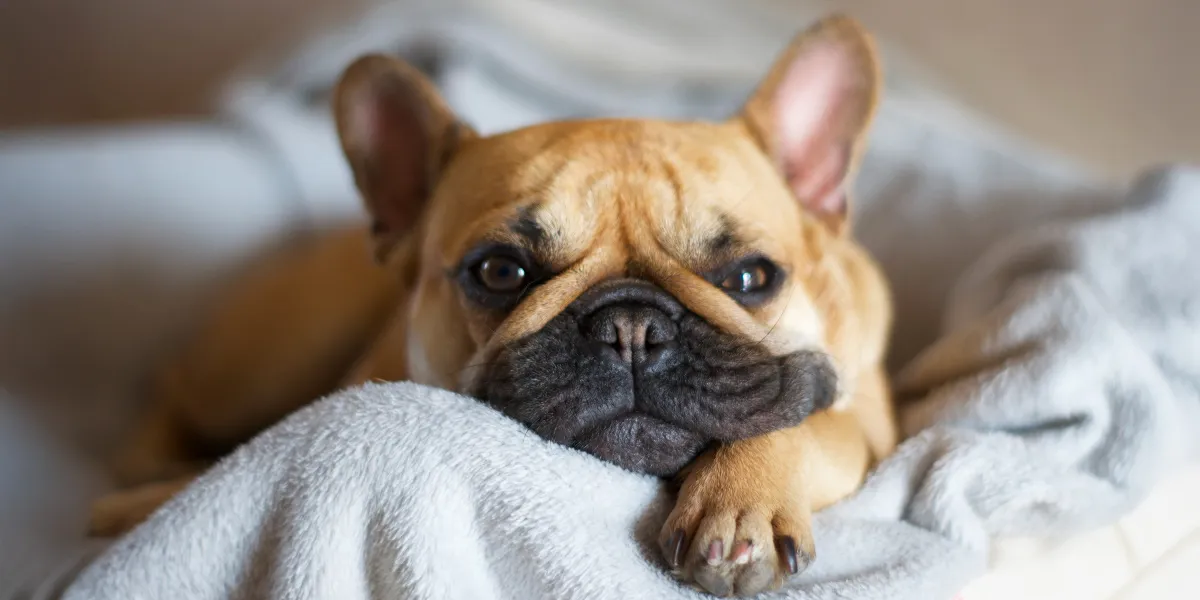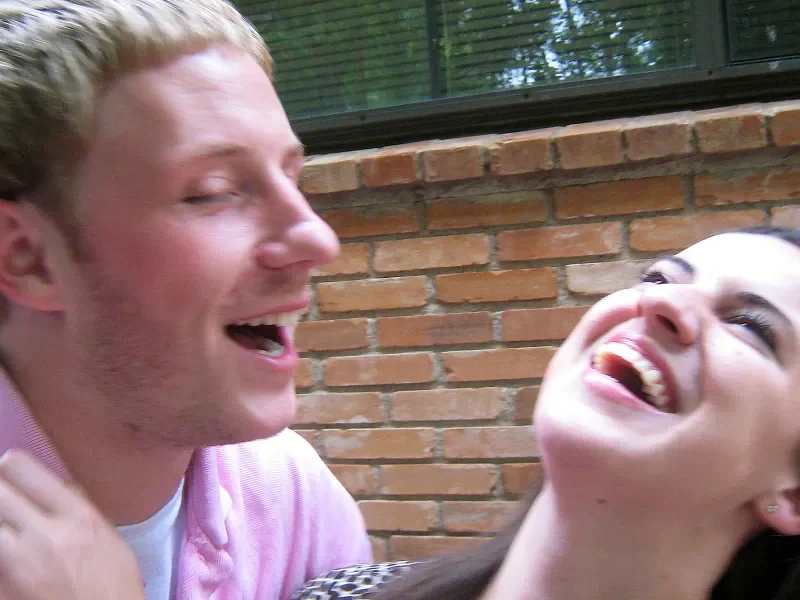Grief is supposed to bring families together, but in my case, it did the opposite. My mother was barely in the ground before my father started making changes—ones I never saw coming. But what my father didn’t know was that my mother had left behind one final surprise.
I was nineteen when my mother died. It happened fast—too fast. One moment, she was laughing at some dumb reality show, and the next, she was too weak to lift a spoon. Cancer doesn’t wait for goodbyes. Neither did my father.
Mom was everything warm and good in our house, and where she went, Peanut followed. That little French Bulldog was glued to her side, her shadow in fur. When the sickness took hold, Peanut barely left her bed, curling up against her like she could keep her here just by being close.
I tried to do the same, but unlike Peanut, I had to eat, sleep, and pretend my father wasn’t already erasing her before she was even gone.
He never loved her—not the way she deserved. I never saw him hold her hand, never saw him bring her flowers, or even look at her the way a husband should. And in those last days, he barely even pretended.
When the doctors told us it was only a matter of time, he just nodded. No tears. No breaking down. Just a nod, like they told him the dishwasher needed fixing.
“I don’t want to go,” I whispered, gripping the edge of the black dress I borrowed from my cousin. It smelled like lavender and someone else’s life.
“You have to,” my father muttered, fixing his tie in the hallway mirror. His voice was flat like we were heading to a business meeting, not my mother’s funeral.
I swallowed hard. “Peanut should come.”
He sighed, exasperated. “It’s a dog, not a person.”
“She was Mom’s dog.”
“And Mom’s gone.”
The words punched the air from my lungs. I felt Peanut’s little body press against my leg, warm and trembling. I bent down, scratching behind her ears. “I won’t be long, okay?”
She licked my fingers.
The funeral was a blur of murmured condolences and stiff hugs. Strangers told me I was “so strong,” but I didn’t feel strong. I felt hollow. My father barely spoke, just nodded along like he was checking off a task list. When we got home, he pulled off his tie and tossed it on the counter.
“It’s done,” he said.
“Done?” I snapped. “Mom just died, and you’re acting like—”
“Like what?” He turned, eyes cold. “Like I have to move on? Because I do. And so do you.”
Peanut whimpered at my feet. I scooped her up, pressing my face into her fur. “I’m going to bed.”
“Take that thing with you,” he muttered, grabbing a beer from the fridge.
That night, I barely slept. Peanut curled up beside me, breathing softly. For the first time since Mom died, I felt something close to safe.
Until the next day.
I came home to silence. No tiny paws clicking against the floor. No excited snorts. Just the sound of my father cracking open another beer.
Something was wrong.
“Peanut?” I called, dropping my bag. My heart was already racing. “Peanut!”
Nothing.
I turned to my father. He sat in his usual spot, feet up, eyes on the TV. Like nothing had changed.
“Where’s Peanut?” I asked, my voice unsteady.
He didn’t even look up. “Got rid of her.”
The world tilted. My skin went cold. “What?”
“She’s gone,” he said, taking a slow sip. “Not my problem anymore.”
I couldn’t breathe. The words didn’t make sense, like he was speaking another language. “You—what do you mean gone? Where is she?!”
He finally glanced at me, eyes dull. “Some shelter.” He shrugged, as if he were talking about an old chair he didn’t need anymore. “Better off there than in my house.”
My body moved before my brain did. I ran.
Out the door. Down the street. Into my car.
I barely remembered the drive. Peanut had never spent a night without Mom or me. She must have been terrified and confused.
It took hours. Three different shelters before I found her.
She was curled in a corner of a steel cage, shaking. Her big, dark eyes met mine, and she let out a whimper—small and desperate. She pressed her little body against the bars, tail thumping weakly.
“Peanut,” I breathed.
The woman at the front desk gave me a sad smile. “Can I help you?”
“I’m taking her home.” My voice was shaking. “She’s my dog.”
The woman’s expression shifted. “I’m sorry, but your father signed surrender papers.”
“So? He had no right—”
She sighed. “Legally, she’s not yours anymore.” She hesitated, then softened. “Her new owner is coming for her today.”
I wanted to fight, to scream, to do something.
But I was too late.
Peanut was already gone.
Two weeks passed in a blur of silence. My father barely spoke to me, not that I cared. The house—Mom’s house—felt emptier than ever. No Peanut. No warmth. Just the ghost of everything I’d lost.
Then the phone call came.
“There’s something you need to come in for,” my mother’s lawyer said. His voice was unreadable, which made my stomach twist.
When I arrived, my father was already there. He barely acknowledged me, arms crossed, foot tapping impatiently against the floor. He wasn’t mourning—he was waiting. For money, probably.
The lawyer cleared his throat and opened a folder. “Your mother’s will is very… specific.”
My father straightened, anticipation flickering in his eyes.
I held my breath.
“Everything she owned before the marriage remained solely hers,” the lawyer continued. “And since everything in this marriage was bought with her money—” He paused, glancing at my father. “That means everything goes to the sole beneficiary.”
My father leaned forward, ready to collect.
The lawyer turned to me.
“Peanut.”
Silence.
My father barked a laugh. “What?”
The lawyer didn’t even blink. “Your mother left everything to Peanut—her house, her savings, all assets. Everything now belongs to Peanut.”
The air in the room shifted. My father stiffened. I could hear his breath hitch.
“That’s insane!” he snapped, voice sharp with disbelief. “A dog can’t own anything!”
“Correct,” the lawyer nodded. “Which is why her legal guardian has full control over the estate.” He closed the folder, finally meeting my eyes.
Realization hit like a bolt of lightning.
I was Peanut’s guardian.
Which meant… everything was mine.
My father’s face twisted with fury.
And for the first time in a long time, I smiled.
My father went pale, then red. His fists clenched on the table. I had never seen him emotional about anything—until now.
“This is a joke. A goddamn joke!” he spat.
The lawyer didn’t even blink. He simply slid the paperwork across the desk. “Legally binding. Your wife was very clear. You get nothing.”
I saw my father panic. His jaw tightened, and his breath came faster. His eyes darted between me and the lawyer, hands gripping the chair as if holding on would stop everything from slipping away.
Then, something clicked in his head. He shot to his feet so fast that the chair screeched against the floor.
“Then I’ll get the dog back.”
I smirked. “Good luck with that.”
He stormed out. I let him go.
By the time he reached the shelter, Peanut was already gone.
Ashley, my mother’s best friend, had been a volunteer there for years. The moment she saw Peanut on intake, she didn’t hesitate—she took her home. My father had unknowingly handed Mom’s most beloved companion to someone who actually cared.
By the time he arrived, demanding his property, there was nothing left for him to claim.
And by then, I was gone too.
Ashley took me in like I was one of her own. In her home, I wasn’t just surviving—I was safe. Loved. I had the house, and the money, but most importantly, I had Peanut. She curled up beside me every night, warm and happy, far away from the man who never wanted us.
My father?
He had nothing.
Just like he deserved.
And the last words I ever said to him?
“Mom always knew you’d end up alone.”


